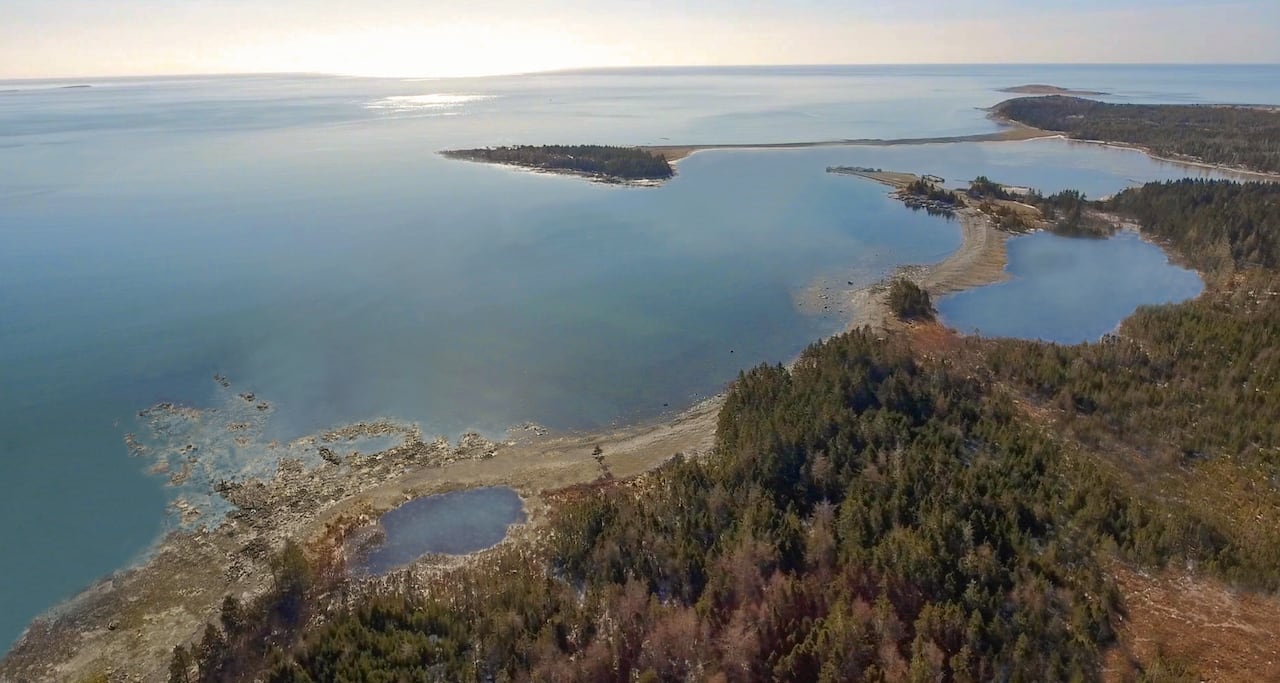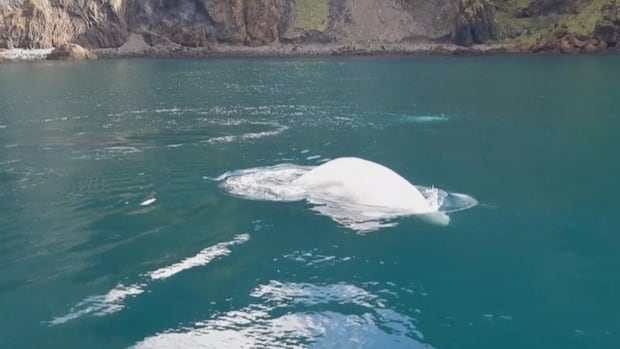Caught in the political crossfire and facing potential death, there are few options for relocating the remaining 30 belugas at Marineland in Niagara Falls, Ontario.
The now-closed theme park and zoo said in a statement last week that the whales face possible euthanasia after Ottawa denied their requests to export them to Chimelong Ocean Kingdom in China.
Federal Fisheries Minister Joanne Thompson expressed concern that approving the export request could prepare the whales to be used for entertainment purposes. She said Wednesday that she is “completely open to reviewing” other export requests and that she has reached out to a provincial counterpart about possible solutions.
While any requests to export whales fall under the purview of the federal government, animal welfare is legally the responsibility of the province.
But Ontario Premier Doug Ford said he wants Thompson to reconsider his decision and help get the whales out of the country.
“Either they issue a license and we end up finding them a home, or they don’t issue a license and they can find a solution…,” Ford said Tuesday.
Expert says whales face certain death in the wild
As for what those solutions could be, it’s complicated.
Releasing belugas into the wild would amount to a death sentence, said Andrew Trites, director of the Marine Mammal Research Unit at the University of British Columbia.
If they are placed in an environment to which they have never adapted, they may be rejected by other animals and “face a life of hunger and loneliness”.
Another idea promoted by some animal rights groups is to establish a seaside sanctuary where belugas can live in a fenced-in area in the ocean.
But such a reserve is not established anywhere in North America.
However, in Iceland’s Klettsvik Bay there is a sanctuary run by the British charity SEA LIFE Trust. According to its website, the Beluga Whale Sanctuary was created “with the goal of providing beluga whales with a safe and more natural home” and has space for up to 10 belugas.
The sanctuary welcomed female Little Gray and Little White from an aquarium in Shanghai, China, in 2020.
WATCH | Drone footage shows belugas swimming for the first time in an Icelandic seaside sanctuary:
In 2020, female belugas Little Gray and Little White were released into a seaside sanctuary in Klettsvik Bay, Iceland, after arriving from an aquarium in China. The whales spent more than 90% of their time in a nearby indoor pool.
But since their arrival, the two whales have spent more than 90 percent of their time in a nearby indoor pool, said Javier Almunia, a marine biologist and professor at the University of La Laguna in Spain and co-author of a 2025 study. published article in the sanctuary.
In an interview with CBC, Almunia said there have been major challenges, including an oil spill in 2022 that contaminated the bay and belugas showing signs of stress from living in an open water environment.
“Everything is different. The weather conditions are changing. The temperature is changing.”
Is a sanctuary better for captive whales?
The U.S.-based Whale Sanctuary Project, a proposal for a site in Port Hilford Bay, NS, has been seen by some as a possible Canadian option for Marineland’s belugas.
Charles Vinick, executive director of the project, said the cove could house eight to 10 belugas, at an operating cost of $1.5 million to $2 million a year.
The project is currently funded by grants, has an initial cost of $15 million and could be up and running by next summer, he told CBC.
“The costs we are talking about are much lower than what would be spent to build another tank on land, even for some cetaceans.”
But the project stopped due to lack of consent from adjacent landowners and has not yet received federal or provincial approval.

Vinick said not everyone agrees with the project, but the situation at Marineland “underscores the need not just in Nova Scotia, but globally, for sanctuaries to be able to respond to the needs of marine park closures.”
Almunia disagrees. He said current research and technology is not where it needs to be to ensure animals have a better life in a seaside sanctuary, and that it could “be an option for animals in 10 or 20 years. It will not be an option for animals tomorrow.”
In the Marineland case, Almunia believes the best solution is to send them to a conventional aquarium where they can enjoy the human care they are accustomed to.
“They are used to management – the bond with the trainer, with the caregivers.”
WATCH | Could a proposed whale sanctuary off the coast of NS be an option for Marineland’s belugas:
One solution to finding homes for 30 Marineland belugas is to send them to a proposed whale sanctuary in Nova Scotia, but development has been stalled since plans for its construction were revealed in 2020.
Advocates cite moral obligation to save whales
Caring for the 30 belugas costs about $2 million a month, Ford previously said.
Another Canadian facility that has held whales in captivity is the Vancouver Aquarium. The last remaining dolphin died in 2017, and a year later it said it would stop keeping whales and dolphins.
As for whether it could accommodate Marineland’s belugas, the Vancouver Aquarium told CBC News it is “unable to accommodate these animals due to legal, regulatory and operational restrictions” and simply does not have space for them.
A letter from the international charity World Animal Protection, addressed to Ford on Monday, said that all whales that cannot be rehomed in Canada, in seaside sanctuaries or otherwise, should go to accredited facilities in the US or Europe where their welfare can be independently verified.
About that, animal defenders They strongly believe that governments have a moral obligation to save Marineland’s belugas from euthanasia.
“The province can confiscate the whales…” said Camille Labchuk, executive director of Animal Justice, adding that “the federal government can decide on the permits and together they can work to prepare a seaside sanctuary or some other appropriate facility for the whales.”



Leave a Reply